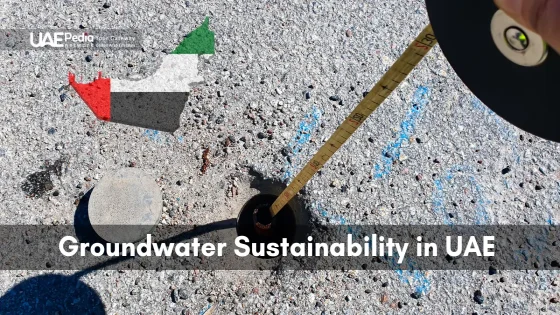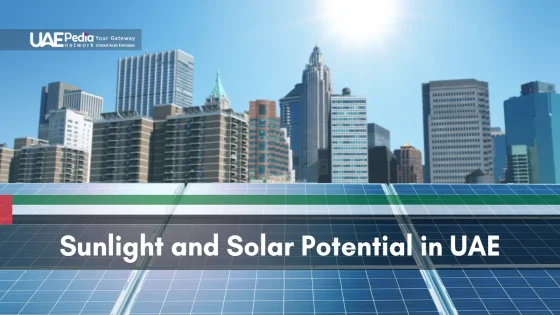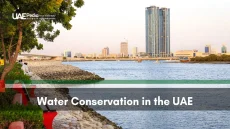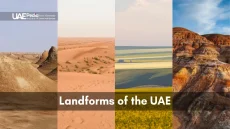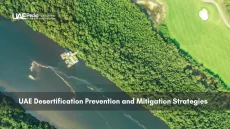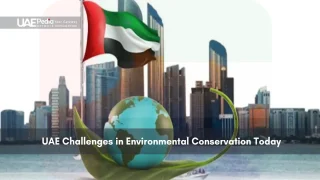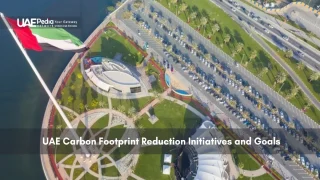Groundwater in UAE is at a critical point. Are we protecting this vital resource enough? Can the UAE’s groundwater meet the needs of its fast-growing population? The future of UAE’s groundwater depends on new solutions and smart management. Did you know irrigation uses 75% of UAE’s groundwater?
The UAE is facing big challenges to keep its groundwater safe. Only 3% of its huge 640 billion cubic meter water is fresh. This makes it hard to keep this water for the future. Groundwater is key for agriculture, especially for date palms. They use 90% of their water from groundwater.
To tackle these issues, the UAE is using advanced monitoring systems. About 45,000 wells are getting new devices to track water use. This helps manage and save UAE’s groundwater better. The UAE’s geography and climate add to the groundwater challenge. Desert soils in the UAE are very permeable. This creates both problems and chances for water management.
To fight water scarcity, the UAE is trying new things. They are using cloud seeding in the eastern mountains to help water levels in aquifers and reservoirs.
Current State of Groundwater Sustainability Resources in the UAE
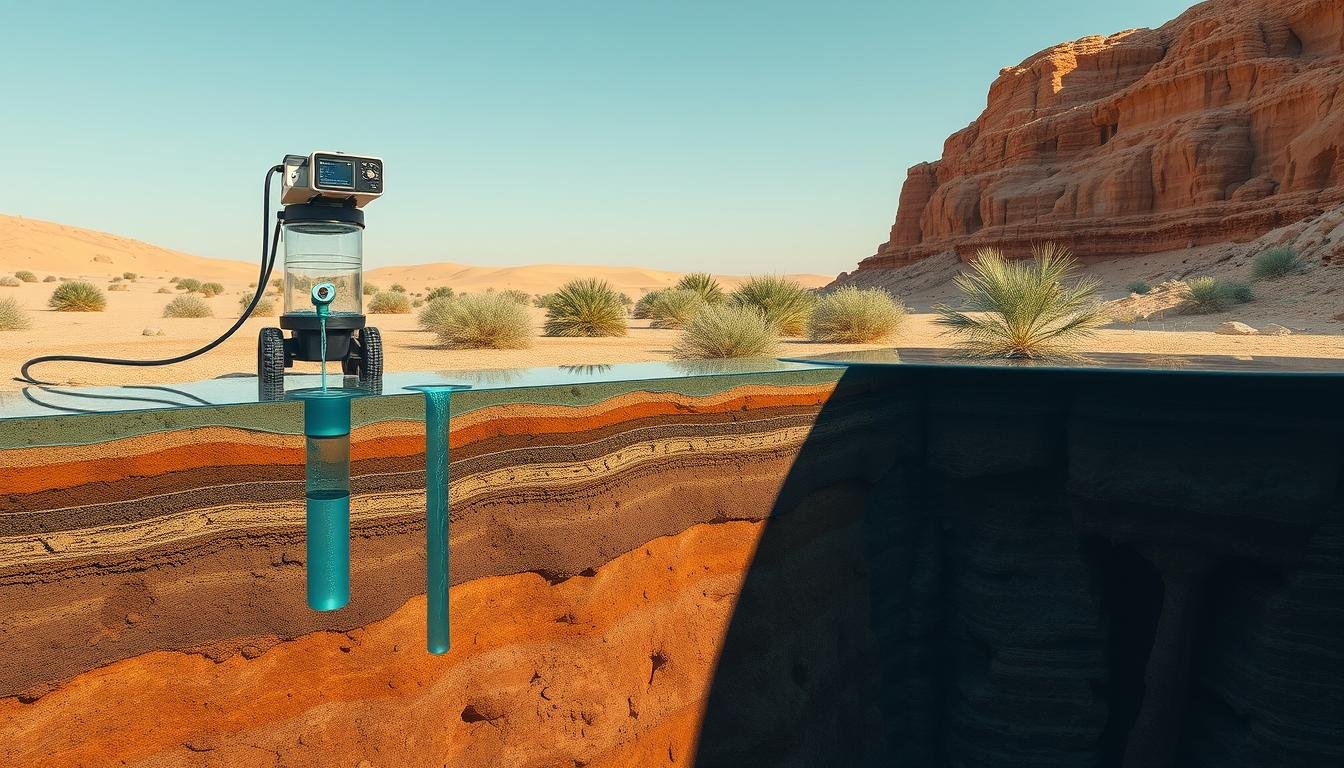
The UAE has big challenges with its groundwater. It has little natural water and uses a lot of groundwater and desalination. Studies show a bad situation that needs quick action and new ideas.
Assessment of Natural Water Resources
The UAE has very little natural water. It gets only 70 to 130 mm of rain each year. This has made the UAE focus more on managing its groundwater.
Now, 71.3% of the water used in GCC countries comes from groundwater. Desalination adds 23.9% to this.
Key Aquifer Systems and Their Capacity
The UAE’s aquifers are under a lot of stress. Since the 1960s, more groundwater has been taken out because of more people and farms. Over 70-80% of the water in GCC countries goes to farming.
This high use has made the water tables drop and the quality of groundwater get worse.
Water Scarcity Challenges
Water scarcity is a big problem for the UAE’s future. People in GCC countries use a lot of water, more than the world average. The UAE wants to use 21 percent less water by 2036.
The country is also building more desalination plants. These plants will provide 42 percent of the UAE’s water needs.
| Challenge | Impact | Solution |
|---|---|---|
| Low Rainfall | Limited natural recharge | Artificial recharge methods |
| High Extraction Rates | Aquifer depletion | Smart monitoring systems |
| Water Quality Deterioration | Saline intrusion | Advanced treatment technologies |
UAE Water Security Strategy 2036
The UAE Water Security Strategy 2036 is a big step towards making sure everyone has access to water. It tackles the big problem of water scarcity. It also focuses on saving groundwater in the UAE.
Strategic Goals and Objectives
The plan has big goals to deal with water use in the UAE. It wants to cut water demand by 21% and make water more productive. It also aims to lower water scarcity by three degrees.
- Reduce average consumption per capita by half
- Increase reuse of treated water to 95%
- Develop a two-day water storage capacity
Implementation Framework
The strategy brings together many groups to work on water security. It plans to link water and electricity networks across the UAE. This will save AED 74 billion and cut CO2 emissions by 100 million metric tons.
Sustainable Water Management Initiatives
The strategy includes many green steps to fight water scarcity. It uses smart water systems, better groundwater recharge, and water-saving farming. The UAE hopes to switch to a green economy, creating jobs and diversifying the economy.
Groundwater in UAE: Challenges and Threats
The UAE has big problems with its groundwater. The country is very dry and gets little rain. It needs to extract a lot of groundwater and use desalination to get water.
Population Growth Impact
The UAE’s population is growing fast. This means more water is needed. Dubai, for example, is one of the fastest-growing cities. Most of Dubai’s water comes from desalination.
Climate Change Effects
Climate change is a big threat to the UAE’s water. Warmer temperatures could make water scarcer. This could hurt both people and businesses. The UAE is working hard to solve these water problems.
Over-extraction Issues
Since the 1960s, extracting groundwater in the UAE has been a worry. Using too much groundwater has lowered water levels and made water quality bad. Many aquifers are now not safe to drink because of pollution and salt.
| Challenge | Impact | Solution |
|---|---|---|
| Population Growth | Increased water demand | Desalination, wastewater recycling |
| Climate Change | Reduced freshwater availability | Solar-powered desalination, cloud seeding |
| Over-extraction | Declining water tables and quality | Smart monitoring systems, water-efficient practices |
Technological Solutions for Groundwater Management
The UAE is at the forefront of managing groundwater with advanced tech. Smart systems and data analysis are changing how we use these resources. This ensures they are used in a sustainable way.
Smart Monitoring Systems
In 2019, Dubai set up 74 monitoring stations with top-notch sensors. These systems watch over groundwater levels and quality at 450 spots. They collect data in real-time, helping manage these resources well.
IoT Integration in Water Management
Internet of Things (IoT) tech is now affordable for tracking groundwater. It lets us monitor water levels, pH, turbidity, and contamination in real-time. This info is key for Dubai’s farming and landscaping.
Data Analytics and Prediction Models
Advanced analytics predict groundwater trends. These tools are essential for managing groundwater, especially with population and climate changes. Despite COVID-19, Dubai keeps investing in these technologies.
| Parameter | Monitoring Method | Importance |
|---|---|---|
| Water Levels | Real-time sensors | Prevents over-extraction |
| Water Quality | Chemical analysis | Ensures safe usage |
| Usage Patterns | IoT devices | Optimizes allocation |
These tech solutions help Dubai’s water security plan. They balance growth with sustainable water use. They are crucial for keeping groundwater safe for the future.
Conservation and Recharge Initiatives
The United Arab Emirates (UAE) is taking bold steps to address its groundwater challenges. It focuses on conservation and recharge. The nation is using innovative strategies to secure its water future.
Dam Construction Projects
The UAE has invested in many dam projects. These projects protect against floods and boost groundwater recharge. Dams like the Wadi Al Beeh, Wadi Ham, and Wadi Wareaa play key roles.
They improve water quality and increase recharge rates in specific regions. These dams capture precious rainfall. They allow it to seep into the UAE aquifer systems slowly.
Artificial Recharge Methods
To enhance UAE groundwater recharge, artificial methods are being explored. Treated wastewater is used for irrigation and aquifer replenishment. In Dubai, over 450 locations tap into underground groundwater resources.
The city is also pioneering rainwater harvesting techniques. It collects and stores rainwater for reuse in irrigation and landscaping. This reduces reliance on desalinated water.
Water-Efficient Agriculture Practices
The UAE is promoting water-efficient farming techniques. It uses smart irrigation systems and drought-resistant crops. Public awareness campaigns educate farmers and residents about water conservation.
These efforts, combined with strict regulations and incentives for water-saving technologies, are reshaping water use patterns. They ensure a more sustainable approach to groundwater management.
